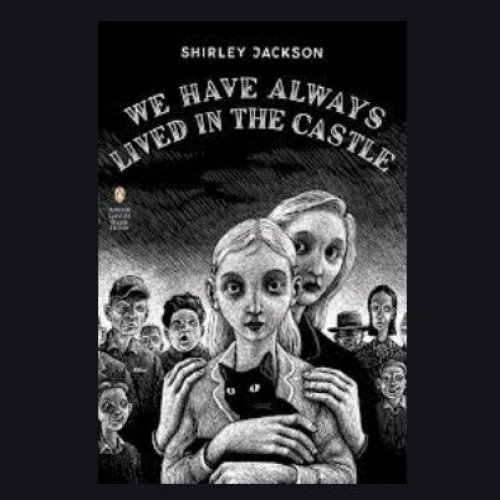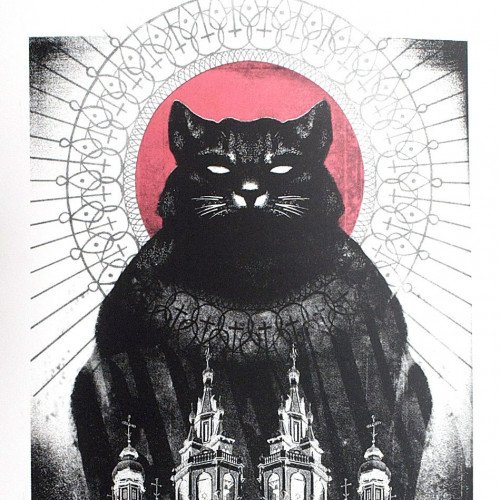"MARY KATHERINE BLACKWOOD, WE HAVE ALWAYS LIVED IN THE CASTLE, SHIRLEY JACKSON" vs "BEHEMOTH, THE MASTER AND MARGARITA, MIKHAIL BULGAKOV"

MARY KATHERINE BLACKWOOD, WE HAVE ALWAYS LIVED IN THE CASTLE, SHIRLEY JACKSON
Merricat narrates the novel. Though she is eighteen during the events she describes, she often acts much younger, smashing things when she’s upset and getting lost in her reveries of living on the moon. At the same time, she has a cold-blooded violent streak; she poisoned most of her family when she was twelve by putting arsenic in the sugar bowl one night when they sent her to bed without her supper. In an attempt to exercise her will over the world, Merricat practices what can best be described as witchcraft. She buries objects all over the Blackwood property as safeguards, and she tries to force Charles to leave by wiping out all signs of his presence in the house and smashing mirrors. Furthermore, Merricat follows a number of rules concerning what she can touch and where she can go. Though the reader might initially assume that Constance has set these rules, it later becomes clear that Merricat has set them herself. Though Merricat shows almost no outward remorse for murdering her family, the nature of these rules suggests that she might feel more guilt than she lets on.
Statistics for this Xoptio

BEHEMOTH, THE MASTER AND MARGARITA, MIKHAIL BULGAKOV
Behemoth is huge black cat who can do everything that a human can do, including talking and walking on his hind legs. He is the most devilish of Woland’s crew and delights in causing havoc. He also has a penchant for setting things on fire, destroying the Sadovaya street apartment block and Griboedev’s towards the end of the novel. His true form is revealed at the end as “a slim youth … the best jester the world has ever seen.” The The Master and Margarita quotes below are all either spoken by Behemoth or refer to Behemoth. For each quote, you can also see the other characters and themes related to it (each theme is indicated by its own dot and icon, like this one: Courage and Cowardice Theme Icon). Note: all page numbers and citation info for the quotes below refer to the Penguin Random House edition of The Master and Margarita published in 1965.